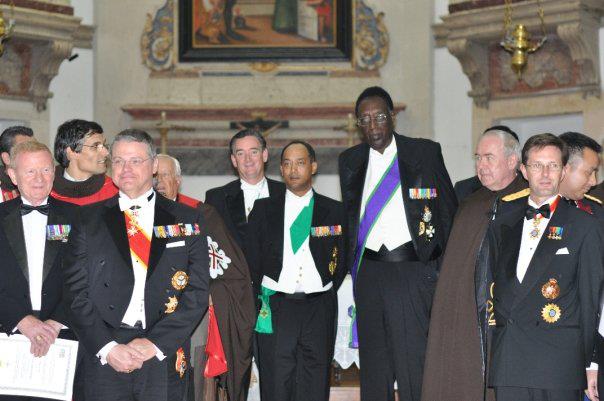
Kigali, Rwanda | AFP |
The last king of Rwanda, Kigeli V, who ruled the east African nation for less than a year before being forced into exile, finally settling in the United States, died early Sunday according to his official website. He was 80.
Born Jean-Baptiste Ndahindurwa, King Kigeli came to power in 1959 and was forced to leave the country the following year after clashing with the Belgian colonial power. In 1961, the monarchy was abolished.
The king began a life of exile in east Africa, including Kenya and Uganda, before leaving for America, where he settled in the suburbs of Washington in 1992.
Details of his death were not immediately known.
“It is with a very heavy heart that we announce that His Majesty King Kigeli V Ndahindurwa, the last King of Rwanda, died early this morning,” read a statement on his website.
“He was a devout and dedicated believer and the last anointed African Roman Catholic king to reign over a full country.”
Funeral arrangements, and details on the heir to the throne will be announced at a later date, the statement said.
King Kigeli had come to power after succeeding his half-brother Mutara III, who died in unclear circumstances on the eve of the Hutu “social revolution” which sent hundreds of thousands of ethnic Tutsi fleeing.
Most of them did not return home to Rwanda until after the 1994 genocide, which left some 800,000 dead, mostly from that minority.
Kigeli V is a Tutsi, but the tradition is that the monarchy represent all Rwandans of all ethnicities.
In September 1961, the monarchy was abolished by referendum and Rwanda gained independence the following year.
While in the United States, the exiled monarch led the King Kigeli V Foundation to aid Rwandan refugees.
‘King of Africa’
A 2013 profile in Washingtonian magazine, found him living in subsidised housing, on food stamps and donations, in Oakton, Virginia, happy to hand out chocolates to neighbours’ children.
“They call me the King of Africa,” Kigeli said of the neighbours, in that report. “Ah, it’s good.”
For decades he spoke of returning to his tiny, landlocked east African homeland.
Since 1994 and the rise to power of current President Paul Kagame’s Rwandan Patriotic Front (RPF) — which emerged from a former Tutsi rebellion — the issue of a potential return by the king was regularly brought up.
Yet every effort failed: the RPF authorities have always said they were ready for him to return, yet only as a private citizen. The former monarch held out hope he could return to the throne.
The issue got a new boost in May from the Democratic Green Party, a small Rwandan opposition group which argued that the king might be a force of unity for a country still torn by the legacy of the genocide.
“We are very saddened by his passing away before he could return to his country,” party chair Frank Habineza told AFP on Monday.
Habineza had asked the Rwandan government to ensure that the king could return to Rwanda with an official role of “safeguarding Rwandan culture,” enjoying the benefits of a former head of state.
Some observers suggested Kagame’s government was deliberately preventing Kigeli’s return, fearing that respect for his traditional authority could challenge the hegemony of the ruling party.
Only three constitutional monarchies remain in Africa, in Morocco, Lesotho and Swaziland – whose King Mswati III is one of the last remaining absolute monarchs in the world.
However hundreds of traditional kings still play an important role across the continent and in some cases, like South Africa’s Zulu king Goodwill Zwelithini kaBhekuzulu, receive hefty allowances from the state.
 The Independent Uganda: You get the Truth we Pay the Price
The Independent Uganda: You get the Truth we Pay the Price


